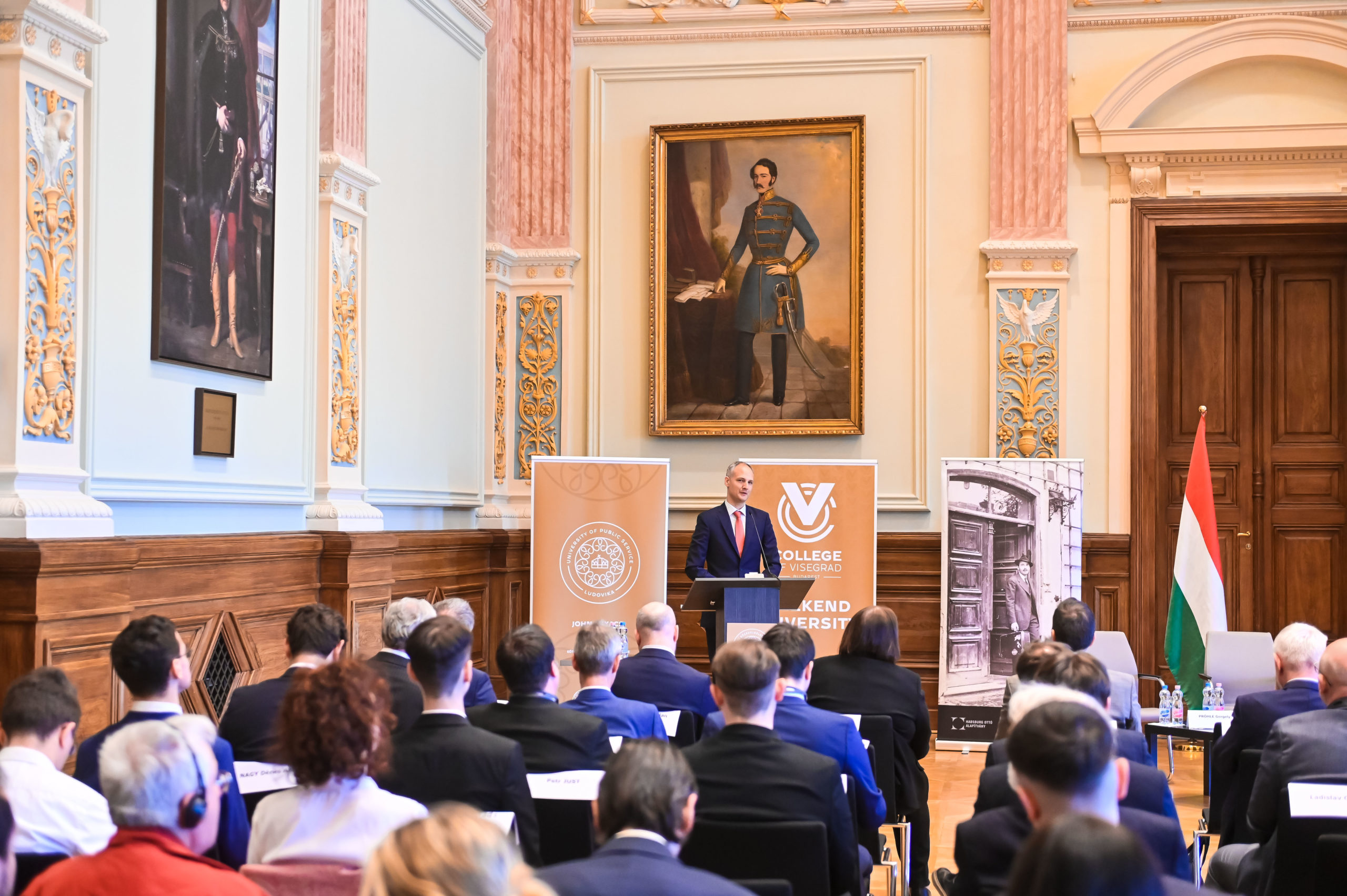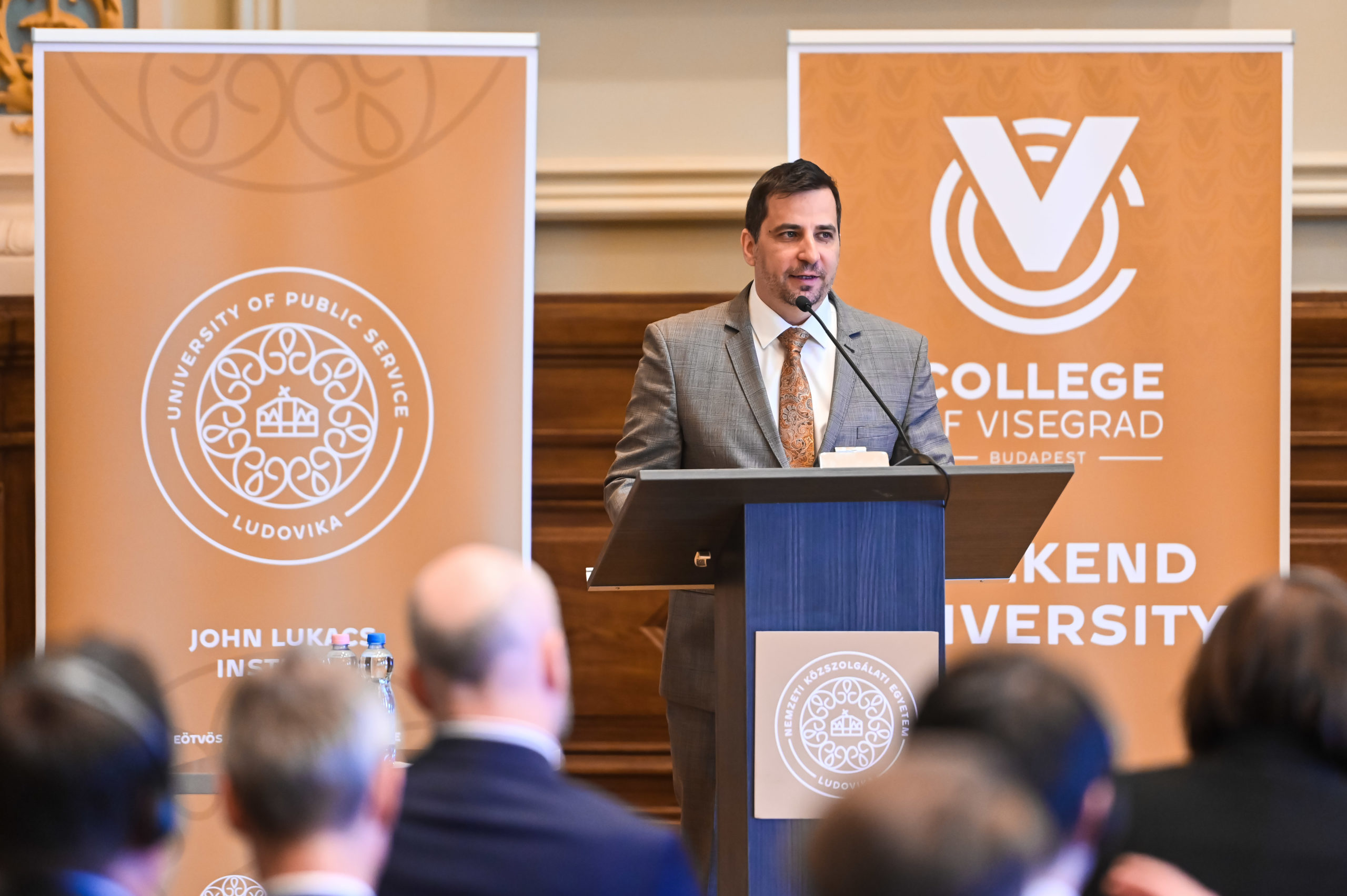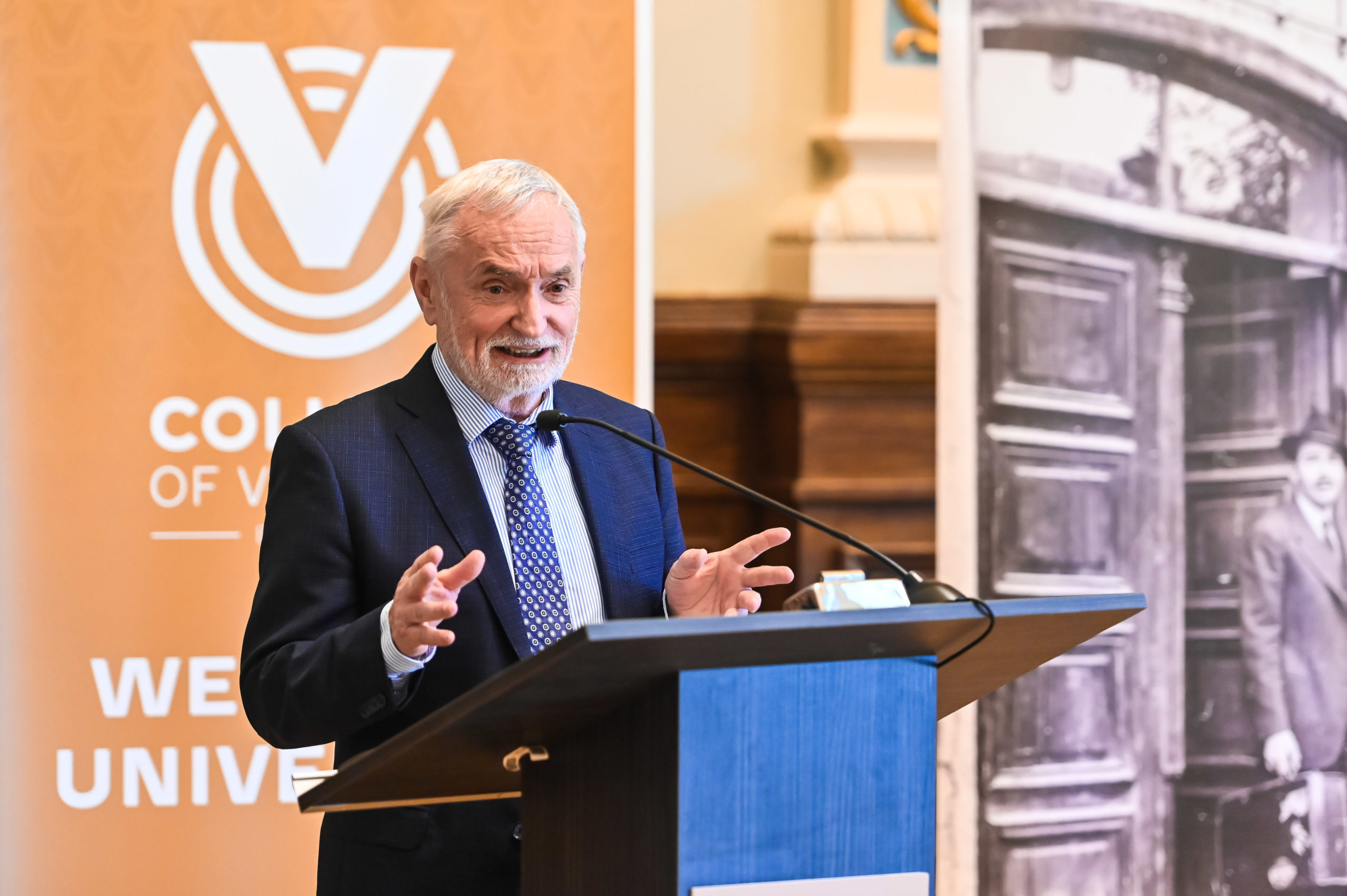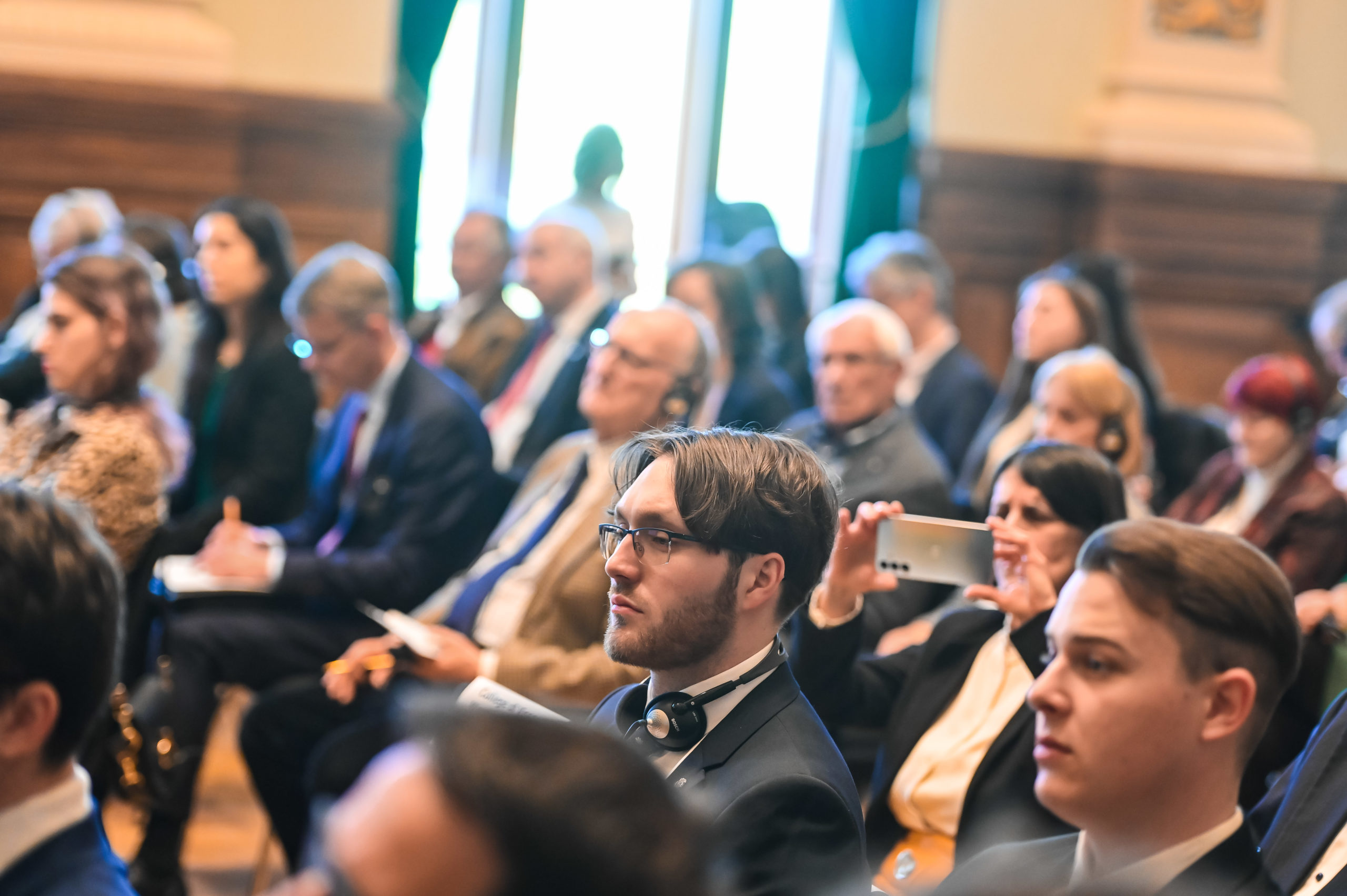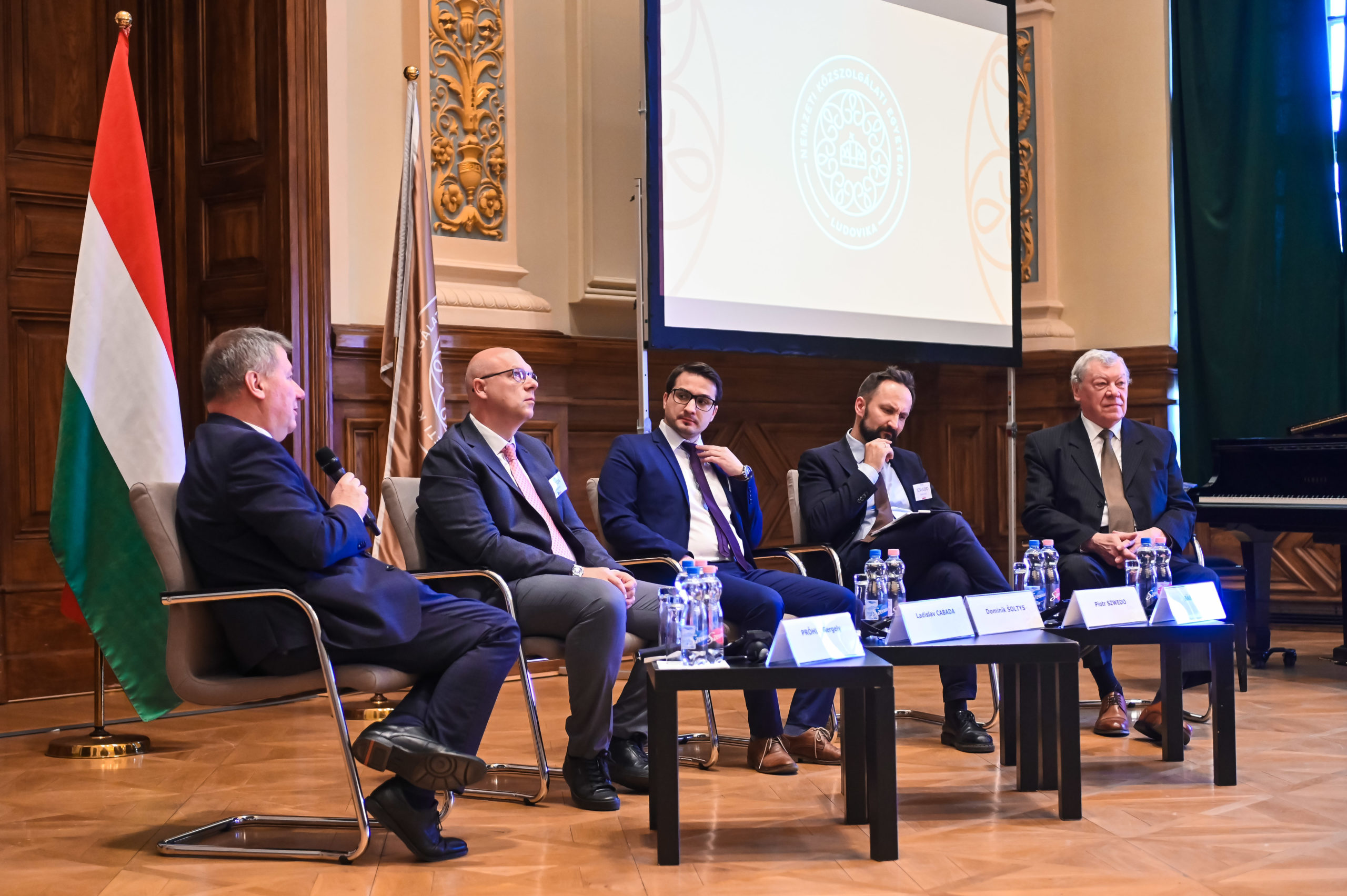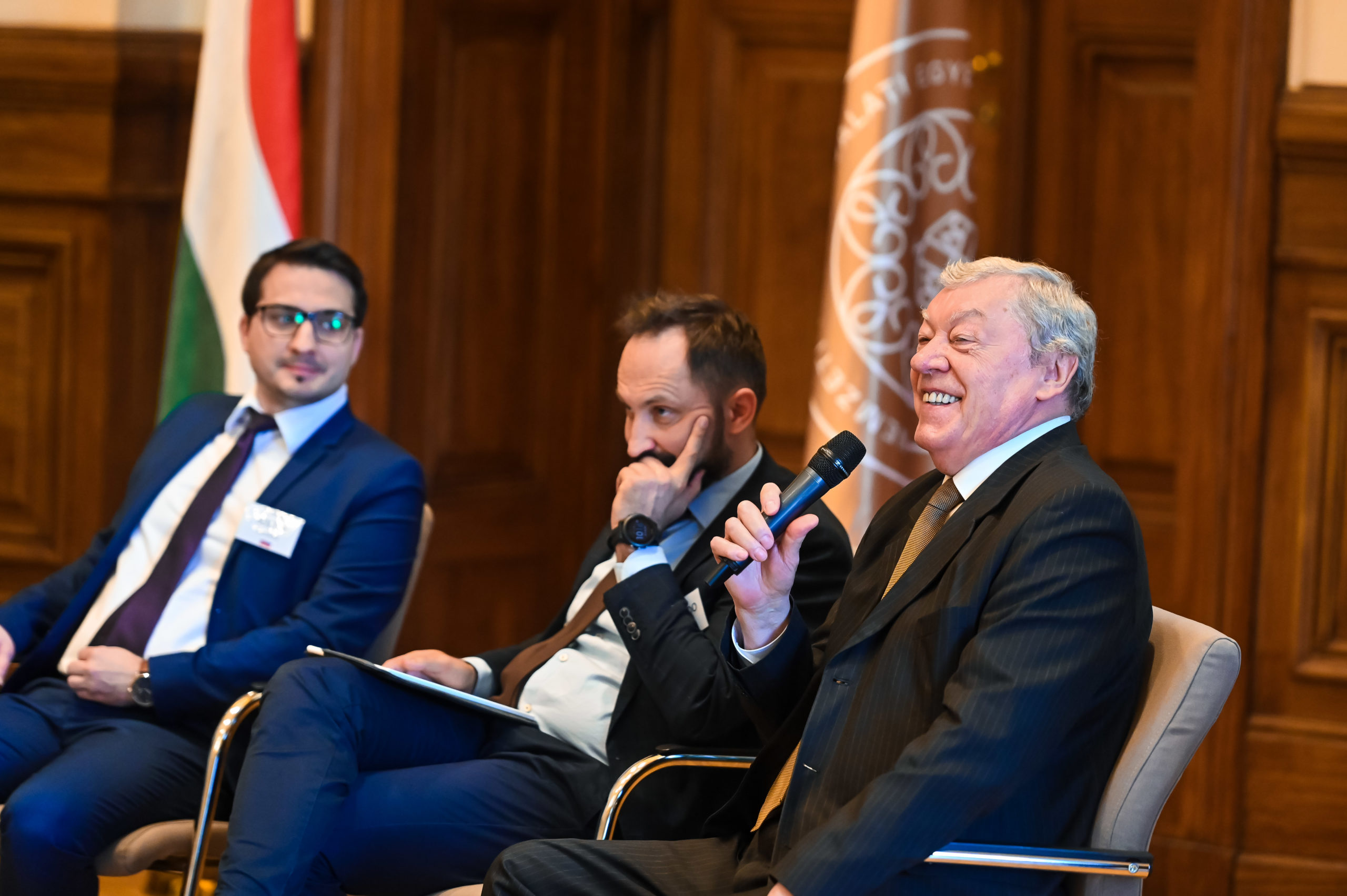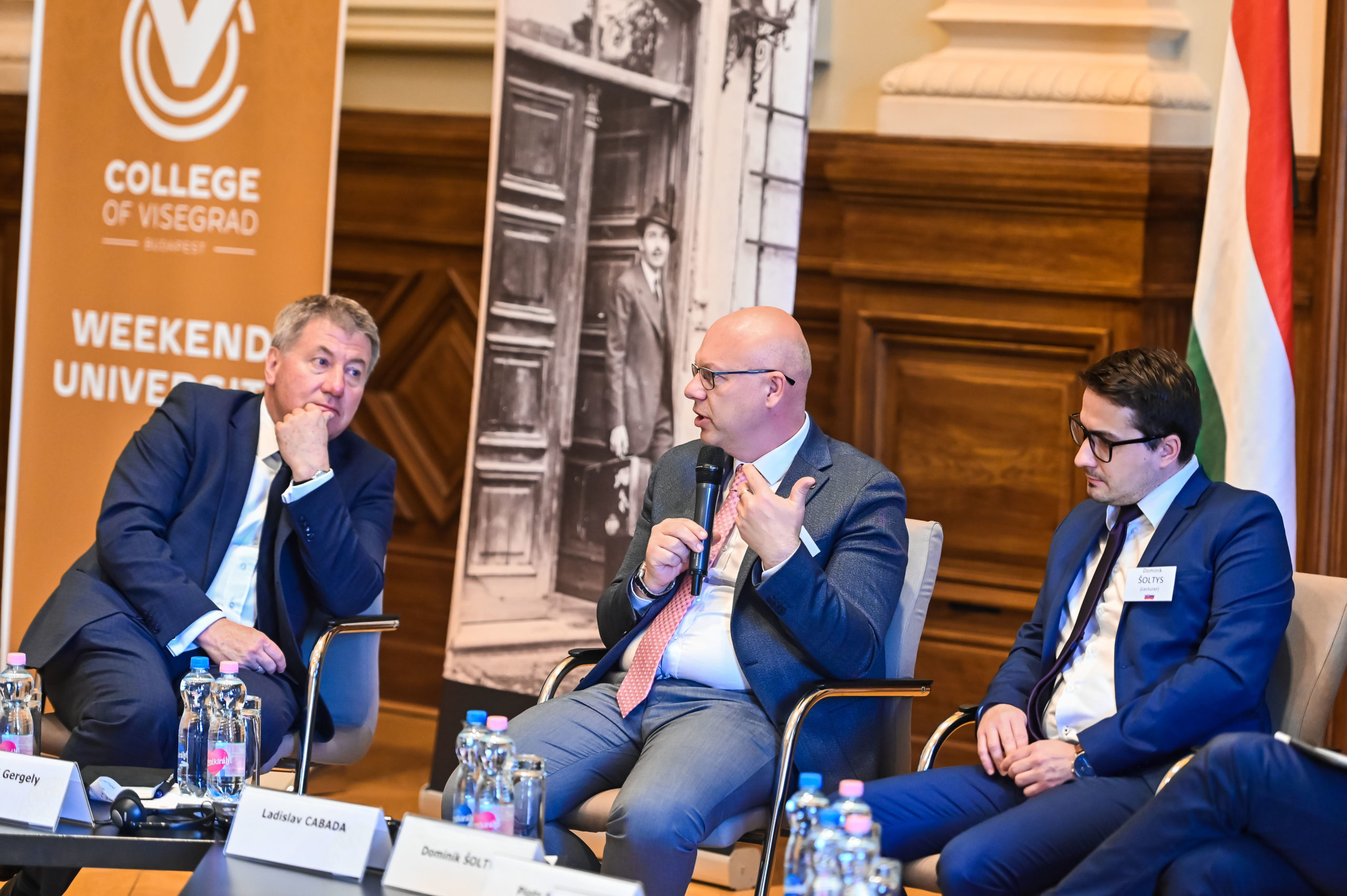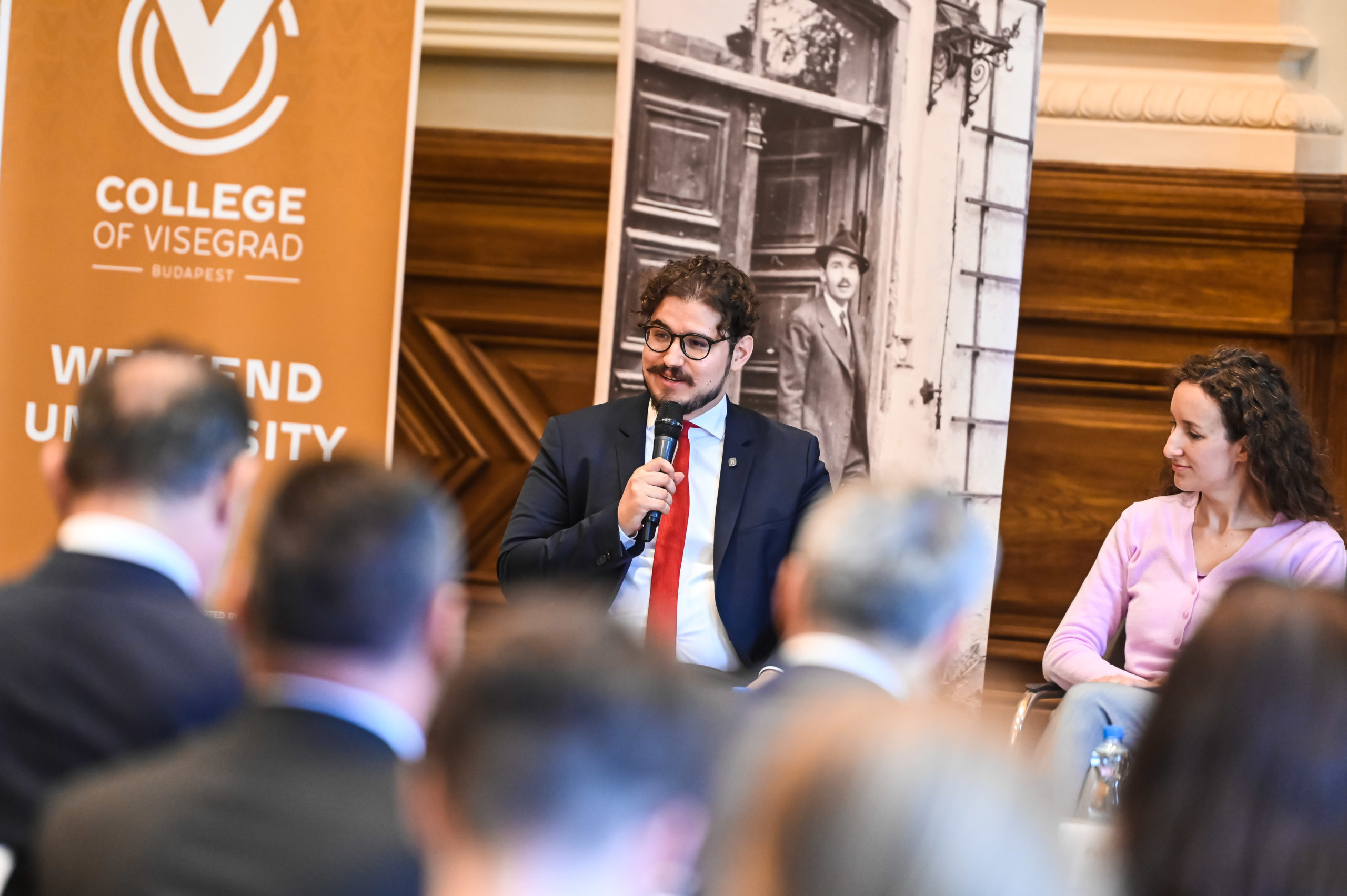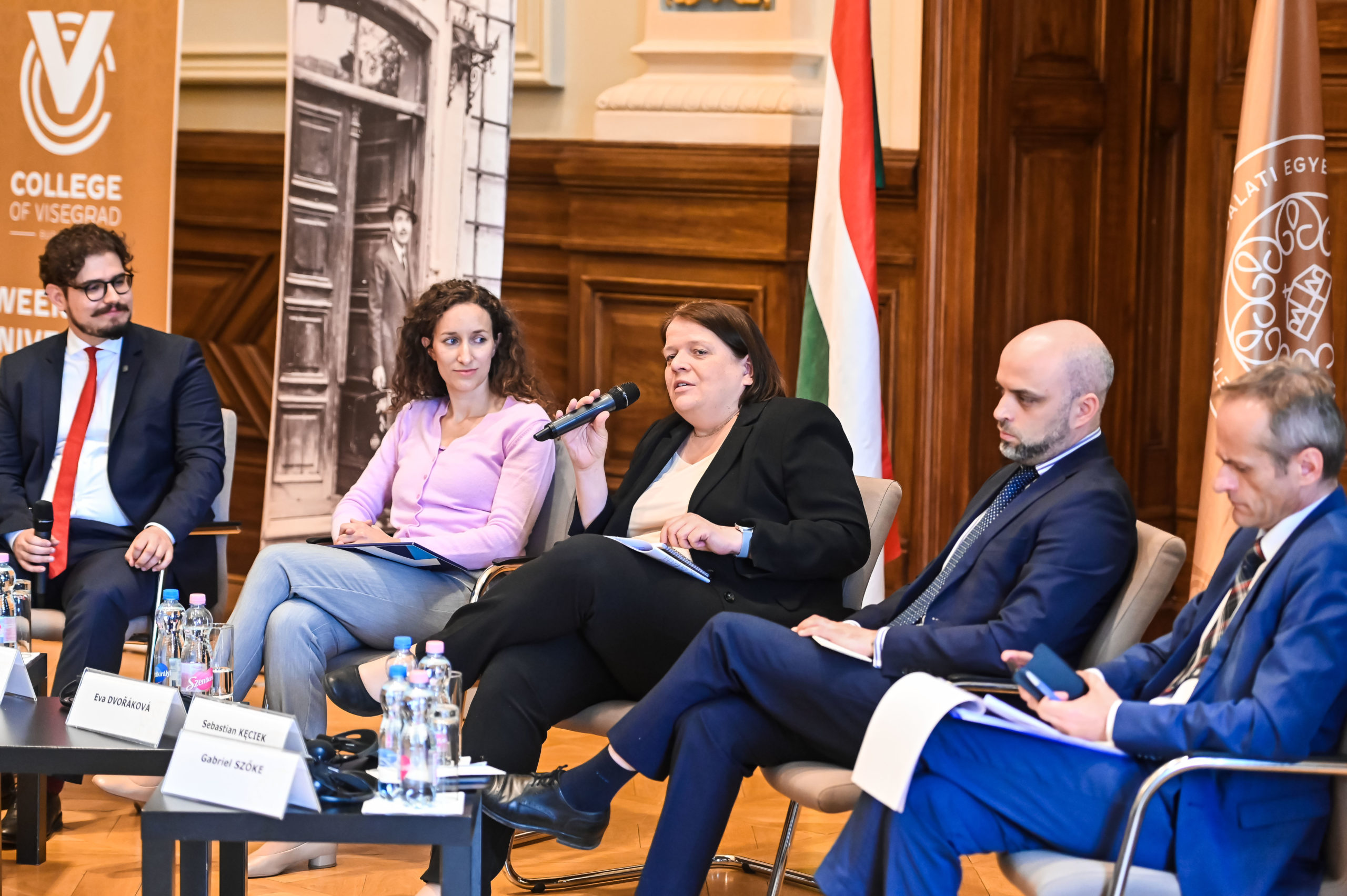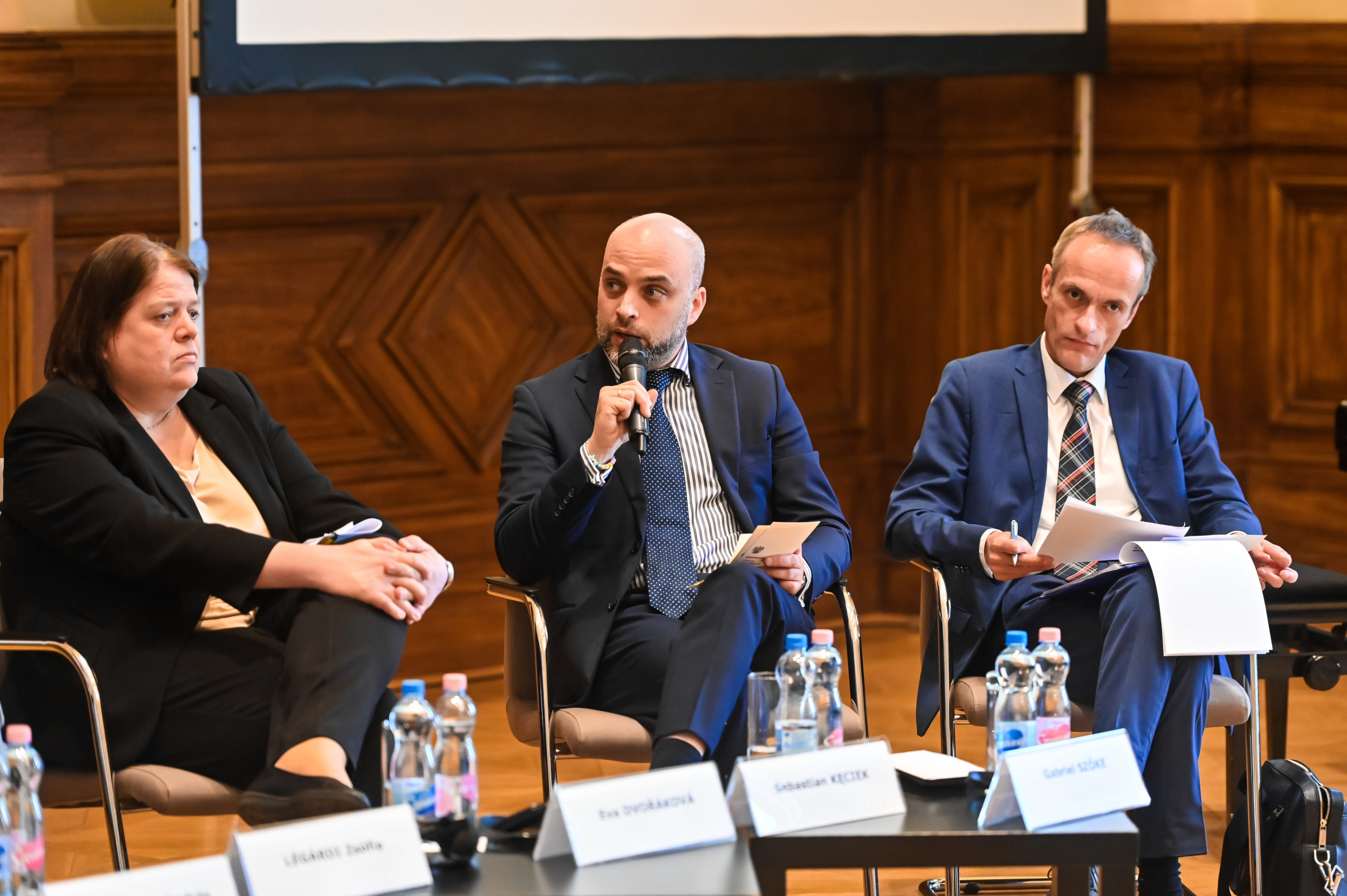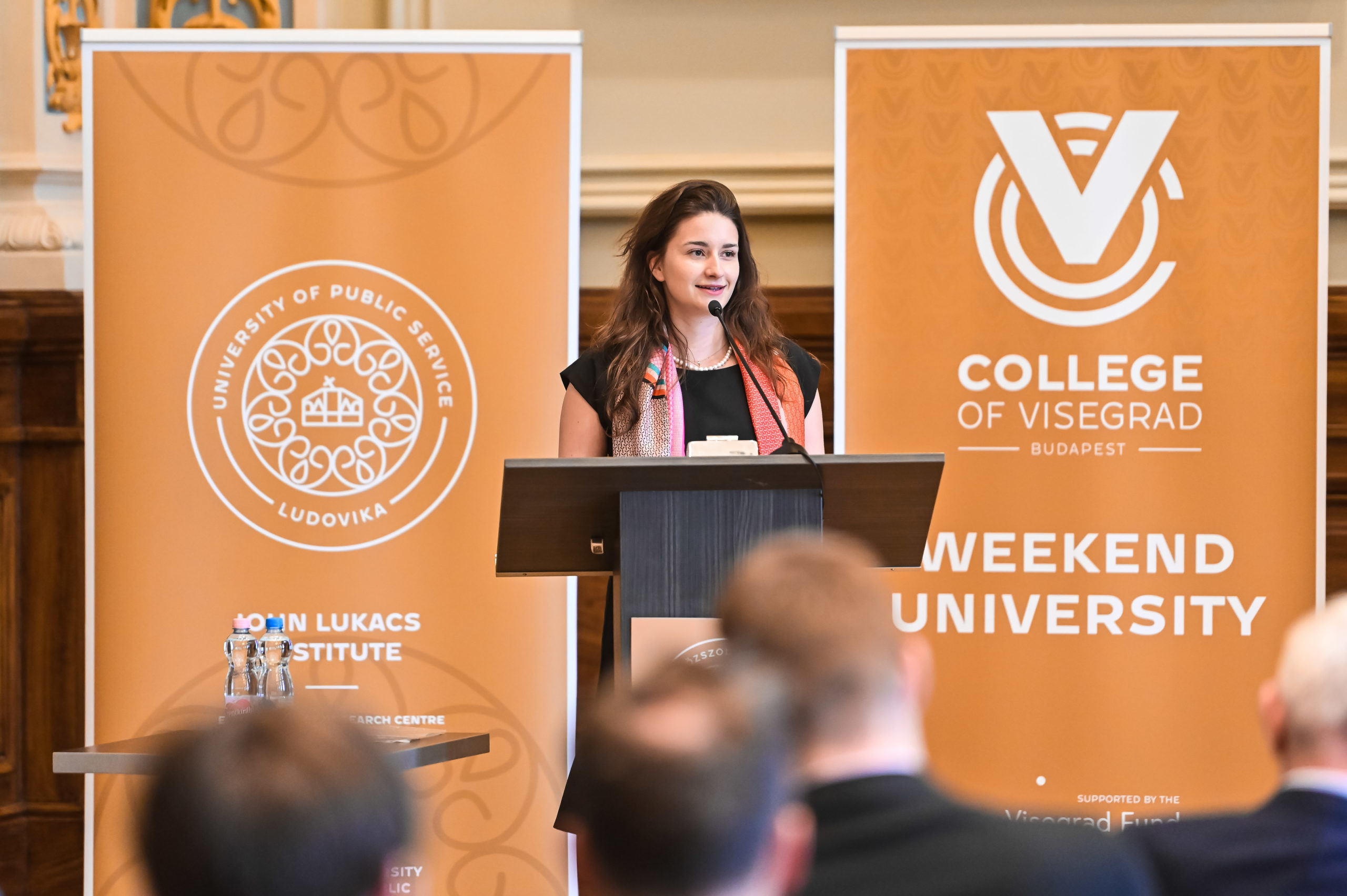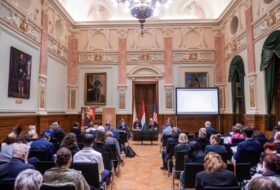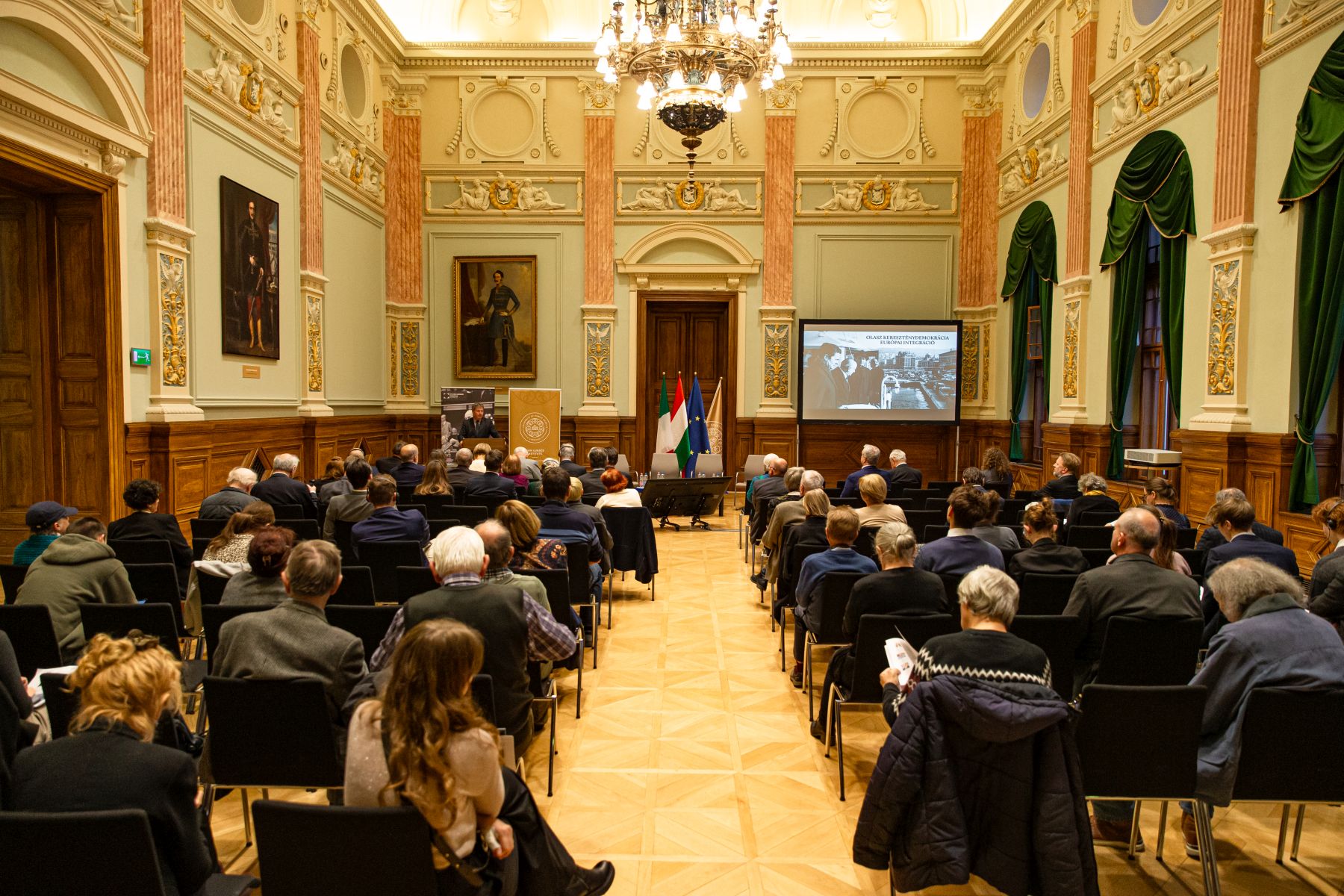In continuation of the practice of the past years, in the spirit of Otto von Habsburg’s commitment to the Central European idea, our Foundation, together with the John Lukacs Institute of the Ludovika University of Public Service, supported by the Visegrad Fund, organised a meeting on 4 April to celebrate the double anniversary, which was simultaneously the opening of the College of Visegrad+ Weekend University programme. The guests were welcomed by Gergely Prőhle, who greeted the students and lecturers from the Visegrad countries and the Hungarian participants. He recalled his impressions when it became evident to him in the early 1990s that the intellectuals of the Central and Eastern European countries were able to build up an extensive personal network in the spirit of Central Europeanism preceding the regime change, which contributed significantly to the integration of the region after the fall of the Iron Curtain. Such personal networks need to be established among today’s youth as well—this is what the College of Visegrad+ Weekend University aims to do.
Gergely Deli, Rector of the Ludovika University of Public Service, underlined the importance of the existing and continuously expanding network of relations with the Visegrad countries, which has been a priority in the life of the University from the very beginning and has created a network of institutions, governmental bodies and private individuals. Only through this can our collective responses to the contemporary challenges—such as environmental policy, security policy and the utilisation of artificial intelligence—be realised, with the active participation of the rising generation.
Regarding our attitude to the conflicts of our time—the war between Russia and Ukraine, the further enlargement of NATO and the EU—Márton Ugrósdy noted that “we are all prisoners of geography”. Given our geopolitical situation, these are matters of great urgency, which call for a redefinition of the principles of cooperation. What we need most today is to make our voices heard on these pressing issues because we cannot expect others to articulate our interests,—warned the Deputy State Secretary of the Political Director’s Office.
“Visegrad is dead”, began Petr Mareš, Executive Director of the International Visegrad Fund, with a provocative opening. He reminded us that our view of history can never be objective but rather a subject of interpretation, which is particularly true regarding the events of the 19th and 21st centuries in Central Europe. It is enough to recall the circumstances surrounding the end of the First World War, which a few years ago meant something radically different for the citizens of some countries in our region. The ‘generational experience’ of communism is slowly fading into the past, but the intervening period since the regime changes is more complex than we realise. That is why it is so vital that decision-makers be aware of the ideas present in our society, which reflect on the world around us. As an illustration, Mareš showed data from public opinion polls in the V4 countries conducted over the past 20 years regarding the region’s “mental map”, which, perhaps most importantly, shows a demonstrable sense of trust and solidarity among the people living here—despite everything. We can only hope to build on this existing potential for cooperation in the coming years.
In the roundtable discussion following the keynote lecture, Ladislav Cabada, Vice Rector of the Metropolitan University of Prague; Dominik Šoltys, Professor of Law at the Pavol Jozef Šafárik University; Piotr Szwedo, Head of the OKSPPO Center for Foreign Law Schools (Jagiellonian University, Krakow); and Iván Bába, former State Secretary at the Ministry of Foreign Affairs, shared their personal experiences of the frequently brought up common identity of the region; and ways in which they consider it possible to give practical content to this virtual reality for today’s young people.
The Ambassadors’ roundtable was moderated by András Dénes Nagy, Coordinator of the College of Visegrad+ programme. Eva Dvořáková, Ambassador of the Czech Republic to Hungary; Gabriel Szőke, Head of the V4 Department of the Ministry of Foreign and European Affairs of the Slovak Republic; Sebastian Kęciek, Ambassador of Poland to Hungary; and Zsófia Légrádi, representative of Krisztina Varju, Deputy State Secretary for the Development of European Relations at the Ministry of Foreign Affairs and Trade, discussed the future of the V4. They all agreed that exchange programmes and cross-border cooperation are fundamental cornerstones of the region’s internal unity.
In her closing remarks, Liliana Śmiech, Director General for International Affairs at the Ludovika University of Public Service, believes that the opening event of the College of Visegrad+ Weekend University is a reminder of the relevance of continued relations within the four countries, which responsibility shall be passed on to posterity. “This will be the mission of the College of Visegrad,” concluded Śmiech.
Photos by Dénes Szilágyi (NKE)
